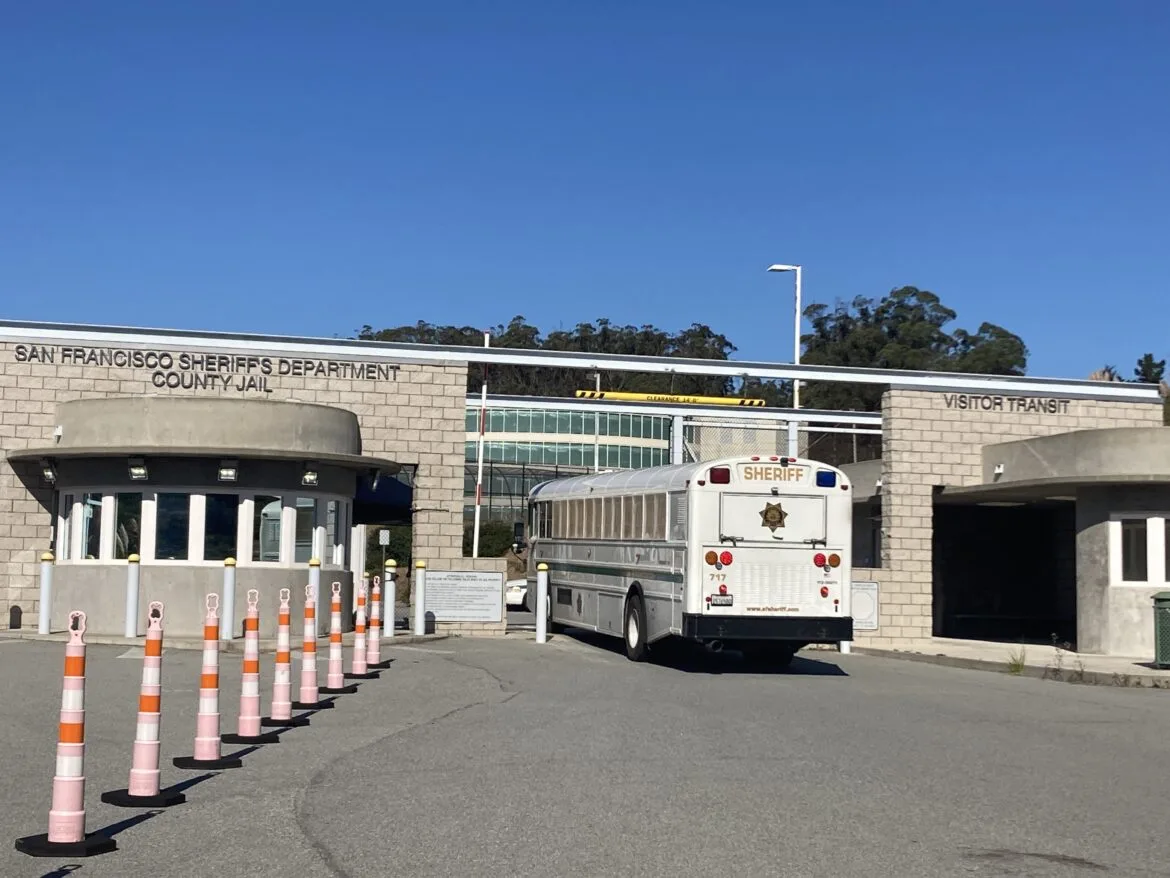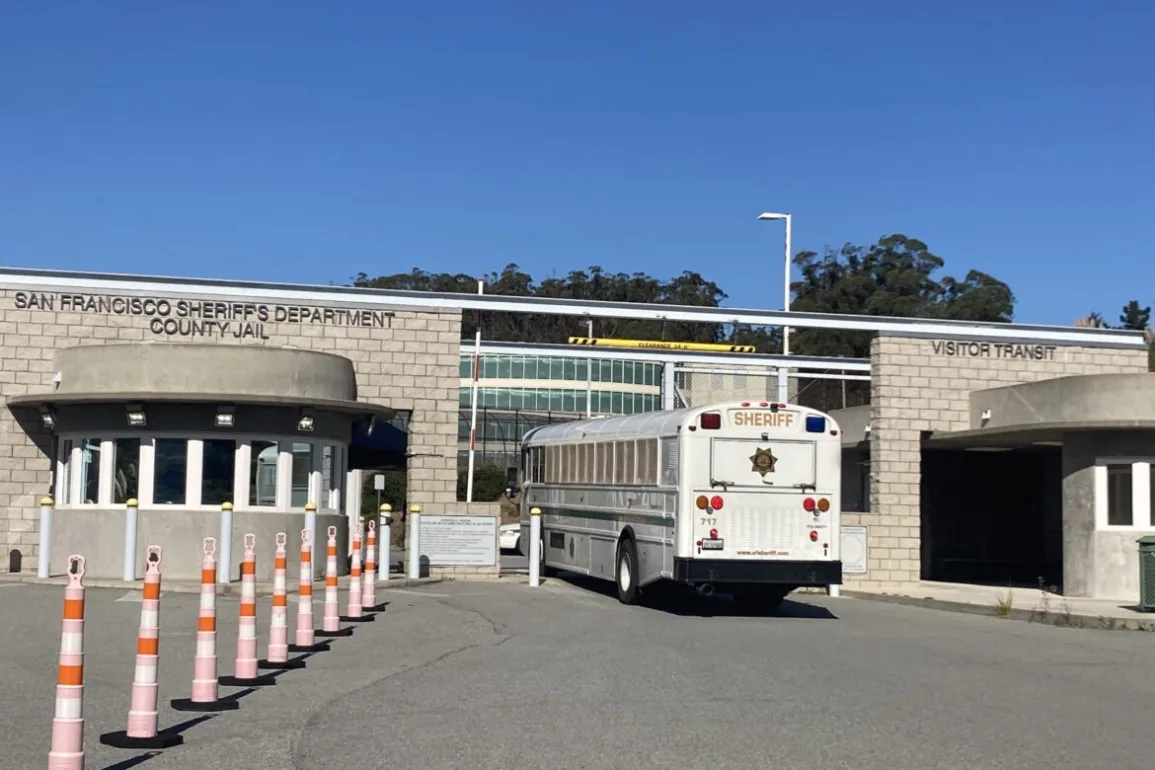
This article is adapted from an episode of our podcast “Civic.” Click the audio player below to hear the full story.
San Francisco District Attorney Brooke Jenkins has frequently compared the sale of fentanyl to murder — most recently saying “the sale of fentanyl is equivalent to handing someone a loaded gun” during an Oct. 1 San Francisco Board of Supervisors hearing.
As such, she has criticized and diminished the use of diversion programs that offer criminal defendants accused of selling drugs rehabilitation, counseling and training rather than jail sentences. Since taking office 15 months ago, Jenkins has reduced the number of referrals to the San Francisco Pretrial Diversion Project by 70%, according to its CEO David Mauroff.
And as San Francisco’s rate of overdose fatalities reaches more than two deaths a day, Jenkins is pushing for defendants accused of selling drugs to remain in jail. But some legal experts say that’s a bad strategy both for the defendants and for public safety.
“Who’s deciding our strategies and our next steps around all these people that are in jail?” Mauroff said. “They’re going to be released, you can’t hold them forever. So, what’s the plan for when they’re released?”
In Episode 4 of the podcast series, “The War on Drugs Revisited: San Francisco and the Overdose Crisis,” we take a historical look at the justice system’s approach to drugs, its racial inequities, what has changed over the years, and which older policies may be making a comeback. Read our previous coverage on this storyline.
Alexandra Pray, a San Francisco deputy public defender, said Jenkins’ heavy prosecutorial approach undermines the possibility of helping people develop skills to lead better lives without selling drugs.
“It’s maddening to have a district attorney’s office who says that their goal is to clean up the streets, but we have this proven way to actually make substantive changes and not just temporarily fix the problem, and the DAs office is willfully avoiding it,” Pray said.
The district attorney’s office did not respond to requests for comment.
Keith Humphreys, professor of psychiatry and behavioral sciences at Stanford University, told a California State Assembly committee dedicated to overdose prevention last May that arresting low-level drug dealers could undermine public safety by taking resources away from fighting violent crime.
“People at the bottom, you can punish them all day, and they’ll just be immediately replaced,” he said. “If you prioritize doing that, if we super criminalized low-level drug crimes, we effectively decriminalize going after rape, arson, murder, because there’s only so much resource in the criminal justice system. So, that I think was the big mistake of the 80s and early 90s that I would hope we would not repeat.”
[To receive updates, sign up for our email newsletter.]
A Pew Research study from 2018 revealed that more imprisonment doesn’t reduce a state’s drug problems. The data showed no relationship between prison terms and drug misuse.
The study’s authors concluded: “The evidence strongly suggests that policymakers should pursue alternative strategies that research shows work better and cost less.”
The San Francisco Pretrial Diversion Project was established as such an alternative strategy in 1976. The board and staff are composed of San Francisco residents, members of the San Francisco Bar Association, judges of the municipal courts, and a former client and current clinical social worker, Philip Jones.
Jones, who said he was in and out of the criminal justice system from an early age, said it wasn’t until he was connected with the pretrial diversion program that he was able to turn his life around.
He said that his Latino-African American heritage influenced the way people in authority responded to his needs as a child.
“From a young age, I was told in school by teachers, by doctors that my behavior wasn’t normal,” Jones said. “I wasn’t able to sit in the classroom and go through eight hours of school every day without some kind of disturbance. I benefited more from physical play art, things that kind of excited a different dopamine response than just like normal completion of tasks or mathematics or science.”
Attempts to discipline Jones escalated from sending him to the principal’s office to after school detention to juvenile hall.
“That, in combination with exposure to trauma, some violence in the home, experimentation with substances, addiction, mental health, just kind of fueled my engagement with the criminal justice system,” he said. “I started to believe that I was this person that was destined to be incarcerated over and over again, this person that was incapable of holding a job, of getting higher education, and in this category where I felt really lost.”
For six years, he was routinely arrested for non-violent offences, at one point facing warrants every other month. Then, through the pretrial diversion program, he was assigned a case manager who helped him navigate social services, secure a long-term shelter bed, enter substance use treatment and anger management programs, and access mental health, where he found out about his bipolar disorder and learned about the importance of taking regular medication. The case manager’s office was open whenever Jones wanted to check in — it even had a cot in a secluded corner if he felt like taking a nap.
Jones said the San Francisco Pretrial Diversion Program helped his life “pivot from a cycle of arrest, jail, court into a cycle of healing.” Today, Jones has a master’s degree in social work and works as a therapist in a middle school and a high school.
“I see myself in the kids I work with every day, and literally in the neighborhood that I grew up in,” he said. “I love when clients feel that they can be comfortable with me when they feel they can talk to me, and they feel that I really see them on a level maybe others haven’t in the past.”



